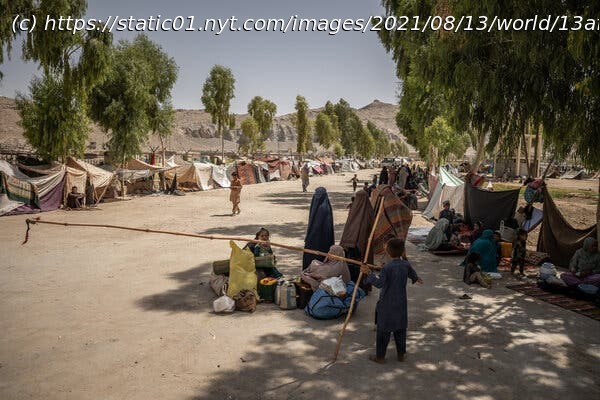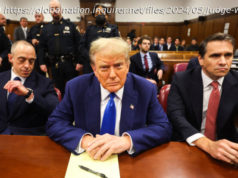Allies may understand the desire to give up on a failed project, but the retreat heightens the sense that America’s backing is no longer unbounded.
Afghanistan’s rapid unraveling is already raising grumblings about American credibility, compounding the wounds of the Trump years and reinforcing the idea that America’s backing for its allies is not unlimited. The Taliban’s lightning advance comes at a moment when many in Europe and Asia had hoped that President Biden would reestablish America’s firm presence in international affairs, especially as China and Russia angle to extend their influence. Now, America’s retreat is bound to sow doubts. “When Biden says ‘America is back,’ many people will say, ‘Yes, America is back home,’” said François Heisbourg, a French defense analyst. “Few will gang up on the U.S. for finally stopping a failed enterprise,” he said. “Most people would say it should have happened a long time ago,’’ But in the longer term, he added, “the notion that you cannot count on the Americans will strike deeper roots because of Afghanistan.’’ The United States has been pulling back from military engagements abroad since President Obama, he noted, and under President Trump, “we had to prepare for a U.S. no longer willing to assume the burden of unlimited liability alliances.” That hesitation will now be felt all the more strongly among countries in play in the world, like Taiwan, Ukraine, the Philippines and Indonesia, which can only please China and Russia, analysts suggest. “What made the U.S. strong, powerful and rich was that from 1918 through 1991 and beyond, everybody knew we could depend on the U.S. to defend and stand up for the free world,’’ said Tom Tugendhat, chairman of the British Parliament’s Foreign Affairs Committee. “The sudden withdrawal from Afghanistan after 20 years and so much investment in lives and effort will see allies and potential allies around the world wondering whether they have to decide between democracies and autocracies, and realize some democracies don’t have staying power anymore,” he added. In Asia, the American withdrawal and looming collapse of the Afghan government have been viewed with a mixture of resignation and trepidation. “Most Asians have already factored it in because it’s been a protracted process, not a shock,” said Susan L. Shirk, the head of the 21st Century China Center at the University of California, San Diego. The country expressing the most concern has been China, which shares a short, remote border with Afghanistan, which under the Taliban served as a haven for Uyghur extremists from Xinjiang, the far western Chinese province. China, which routinely criticizes the United States for acting as a global belligerent, has warned that a hasty American withdrawal could create instability across the region. At the same time, China’s Foreign Ministry offered a public show of support to the Taliban, holding two days of talks late last month with a delegation that included one of the movement’s founders, Mullah Abdul Ghani Baradar.
Домой
United States
USA — Science Afghanistan’s Unraveling May Strike Another Blow to U.S. Credibility






